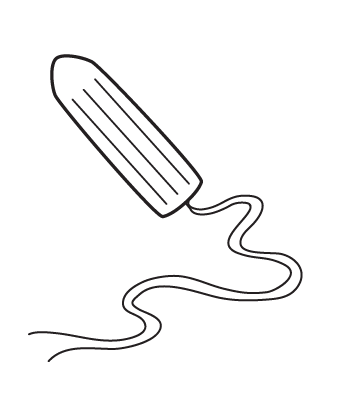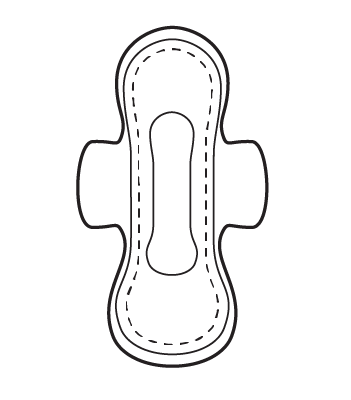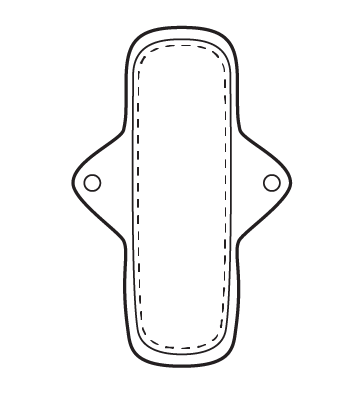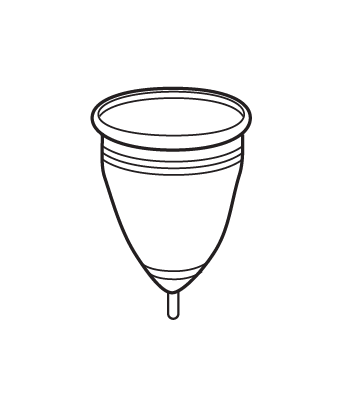As children grow towards their teenage years, the body starts to change, to prepare for adulthood. This change—puberty—happens over a few years.
Puberty can be stressful and confusing, but it is part of growing up. Everyone goes through it—male and female. Some changes are similar in boys and girls, and some are very different. It is important to eat healthy foods, exercise, and get enough sleep during this time, as with every stage of life.
Most boys go through puberty sometime between nine and 15 years of age. The male sex hormone testosterone is responsible for lots of changes in the male body. Testicles produce the testosterone.
Puberty happens at different times for different people. Each boy has his own changes and rate of change. Everyone is different.
Genitals
-
The penis and testicles increase in size
Erections
- A penis is usually soft. A male has an erection because lots of blood rushes into the penis and it swells and gets hard.
- It is natural for an erection to happen at any time, for any reason. Many erections last only a couple of minutes.
- During puberty, male hormones help make semen (sperm + fluids). An ejaculation is when the penis releases semen.
Masturbating
- During puberty, many boys and girls start to masturbate, which means to touch their own genitals. This is natural and healthy, and feels good.
Height and weight
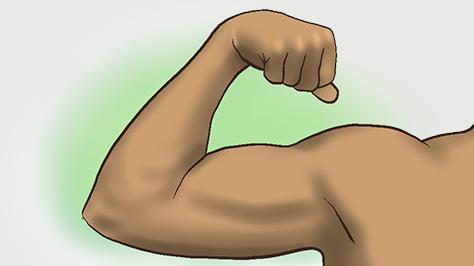
- Grow taller.
- Gain weight and muscle.
Thoughts and feelings
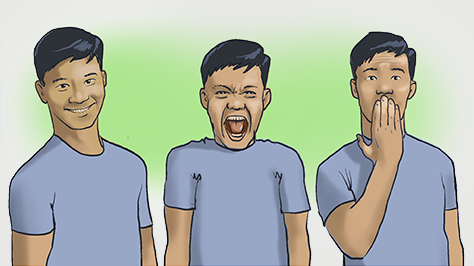
- Experience mood changes often; emotions feel more extreme
- Have sexual thoughts and feelings
- Changing feelings are normal, but may feel strange or difficult to manage.
Skin
- The skin will produce more oil that can cause acne/pimples on the face and body. Some things make acne worse.
- Squeezing or popping zits—can also cause scars
- Oily skin products
- Extreme sunlight
- Stress
- Some things make acne better
- Clean your face morning and night with a face soap
- Manage your stress (get enough sleep, eat healthy, exercise)
- Talk to a health care worker (there are many treatment creams and medications that can help)
Voice
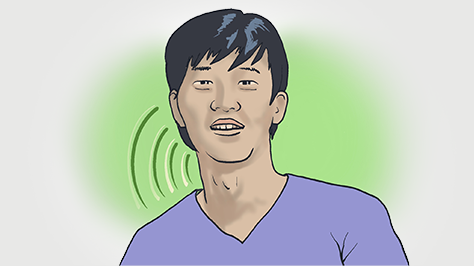
- Grow muscles in the throat; voice may crack or sound high and low while speaking.
Hair and body odour
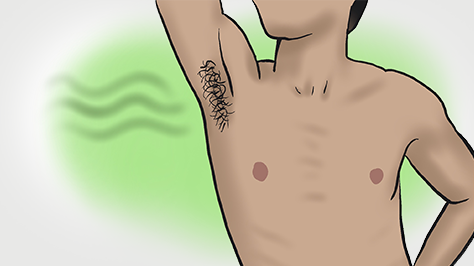
- Hair grows on different parts of the body: chest, face, back, legs, armpits, and around the genitals.
- Sweat more and have a different smell.
Most girls start to go through puberty between 7 and 13 years old, but every person is different. The sex hormone estrogen, produced by the ovaries, is responsible for many changes in the female body Ovaries produce estrogen.
Masturbating
- During puberty, many boys and girls start to masturbate, which means to touch their own genitals. This is natural and healthy, and feels good.
Thoughts and feelings
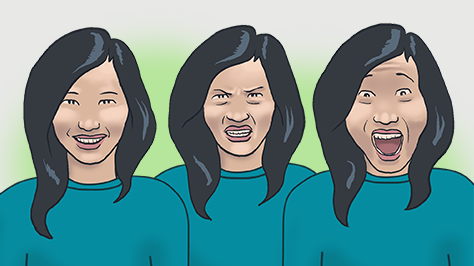
- Experience fast mood changes; emotions feel more extreme.
- Have sexual thoughts and feelings.
- Changing feelings are normal, but may feel strange or difficult to manage.
Skin
- The skin will produce more oil that can cause acne/pimples on the face and body. Some things make acne worse.
- Squeezing or popping zits—can also cause scars
- Oily skin products
- Extreme sunlight
- Stress
- Some things make acne better
- Clean your face morning and night with face soap
- Manage your stress (get enough sleep, eat healthy, exercise)
- Talk to a health care worker (there are many treatment creams and medications that can help)
Voice
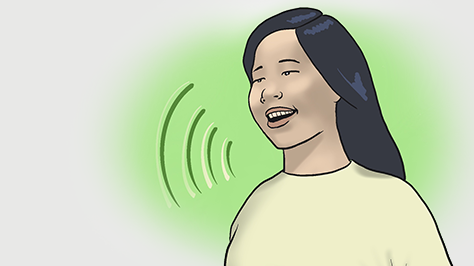
- Her voice gets a little deeper.
Breast
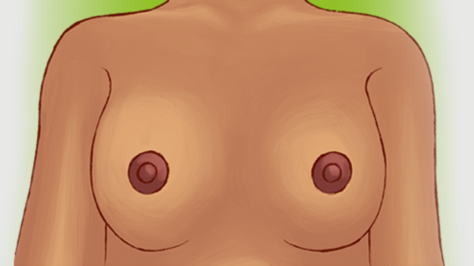
- Breasts will start to grow and develop, they may feel a little sore but this is normal, it is normal for one breast to be a bit bigger.
- The nipple area gets darker.
- Some girls choose to wear a bra and others choose not to.
Hair and body odour
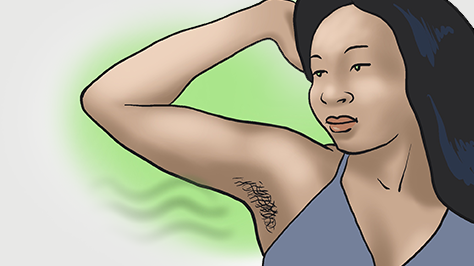
- Hair grows in her armpits and around her genitals
- Sweat more and smell different
Height and weight
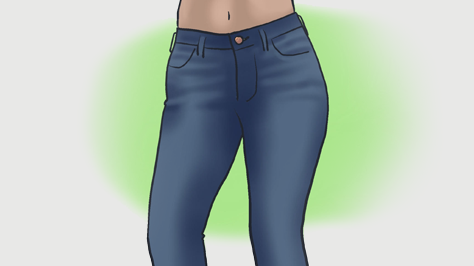
- Grow taller.
- May get more curves around hips, butt, and thighs.
- It is normal for girls to gain weight during puberty
What is it?
A period, or menstruation, is the lining of the uterus leaving the body. Periods are made of blood and fluids. A person getting their period means they are now able to get pregnant
Why does it happen?
If sperm fertilize an egg, the lining of the uterus is needed to help support a growing fetus. If sperm does not fertilize an egg, the lining of the uterus is not needed so it leaves the body through the vagina. This is a period.
When does it start?
Menstruation starts during puberty. No one can tell exactly when – everyone is different. Some people get white or yellow fluid in their underwear, which shows period may start soon.
How long?
The menstrual cycle is from the first day of bleeding to the last day before their next period – usually about 25 to 35 days. Everyone is different, but a period usually lasts from 3 to 7 days. On average, about two tablespoons (30 mL) of menstrual fluid is lost.
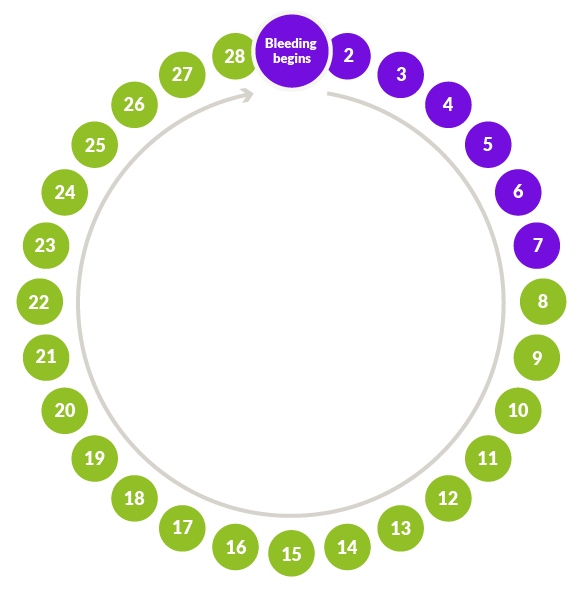
Pain
The blood loss during menstruation does not hurt. Some people get cramps or stomach pain before and during their period. If this happens, try:
- medication such as Advil
- using heat pack on the abdomen
- exercising regularly
- Relaxing or meditating
Managing Menstruation
Each person needs to choose the option that is right for them. If they have questions, they can talk to a nurse or trusted adult.
Tampon
|
A small cotton-like plug that fits inside the vagina to absorb the blood.
|
Pads
|
A disposable pad to absorb blood, with a strip on the bottom that sticks to underwear.
|
Re-usable pads
|
A cloth pad to absorb blood; wings wrap around underwear and snap in place.
|
Menstrual cup
|
A small cup fits inside the vagina to catch the blood and hold it.
|

 Learn more
Learn more